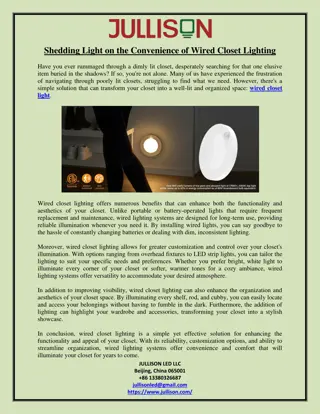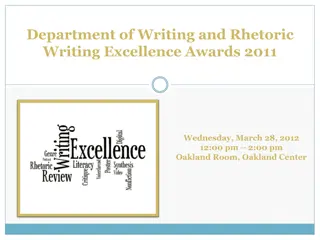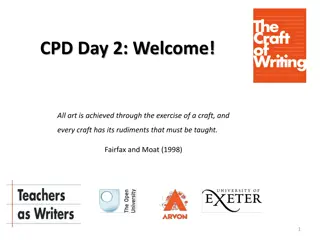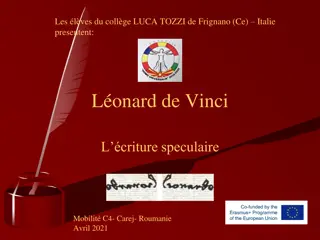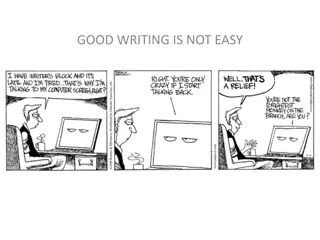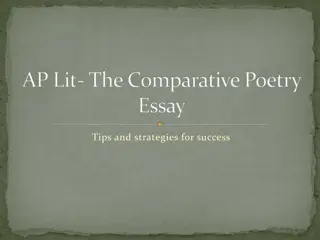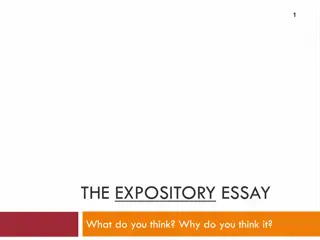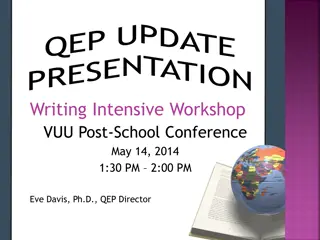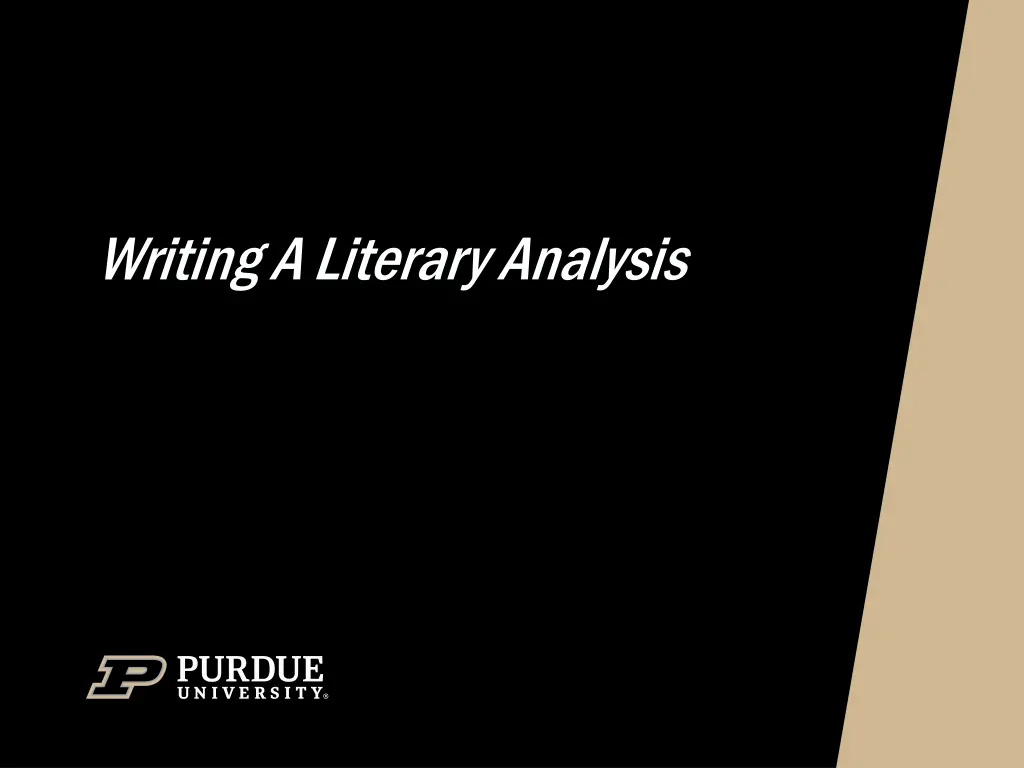
Mastering Literary Analysis
Explore the fundamentals of literary analysis, including key concepts, components, and how to craft compelling arguments. Dive into the world of literature by understanding critical aspects such as plot, setting, characterization, metaphor, and more. Learn where to find valuable resources and enhance your understanding of literary theory to deepen your analysis.
Download Presentation

Please find below an Image/Link to download the presentation.
The content on the website is provided AS IS for your information and personal use only. It may not be sold, licensed, or shared on other websites without obtaining consent from the author. If you encounter any issues during the download, it is possible that the publisher has removed the file from their server.
You are allowed to download the files provided on this website for personal or commercial use, subject to the condition that they are used lawfully. All files are the property of their respective owners.
The content on the website is provided AS IS for your information and personal use only. It may not be sold, licensed, or shared on other websites without obtaining consent from the author.
E N D
Presentation Transcript
What is Literary Analysis? It s literary literary. It s an analysis analysis. It s an argument argument. It may also involve research research on and an analysis of secondary sources. 2
Important Literary Concepts The Basics The Basics Plot Setting Narration/point of view Characterization Symbol Metaphor Genre Irony/ambiguity Other Key Concepts Other Key Concepts Historical context Social, political, economic contexts Ideology Multiple voices Various critical orientations Literary theory 3
How Can I Learn More? Check your library for: Check your library for: Various handbooks of literary terms. Numerous introductions to literary criticism and the theory widely available. Example: A Handbook to Literature, Harmon/Holman 4
What is Literary? Usually, a literary analysis will involve a discussion of a text as writing term literary, which means having to do with letters. This will involve the use of certain concepts that are specifically associated with literature. Example: Metaphor, Setting discussion of a text as writing, thus the 5
What is an Analysis? An analysis analysis of a literary work may discuss: How the various components various components of an individual work relate to each other. How two separate literary works deal with similar concepts or forms. How concepts and forms in literary works relate to larger economic, or religious contexts. contexts. similar concepts or forms. larger aesthetic, political, social, 6
How is Literary Analysis an Argument? Writing an Argument: Writing an Argument: When writing a literary analysis, you will focus on specific attribute(s) When discussing these attributes, you will want to make sure that you are making a specific, arguable point (thesis) a specific, arguable point (thesis) about these attributes. You will defend this point with defend this point with reasons and evidence focus on specific attribute(s) of the text(s). making evidence drawn from the text. 7
Thesis Statements Which is the best Moby-Dick is about the problem of evil. Moby-Dick is boring and pointless. Moby-Dick is about a big, white whale. The use of whiteness in Moby-Dick illustrates the uncertainty of the meaning of life that Ishmael expresses throughout the novel. best thesis statement? 8
How to Support a Thesis Statement Evidence and Support: Evidence and Support: Include examples from the text: Direct quotations Summaries of scenes Paraphrasing Cite other critics opinions critics opinions Discuss the text s historical and social context historical and social context Always remember to read carefully and highlight useful passages and quotes from the text: 9
What is a Secondary Source? Secondary Sources: Secondary Sources: A book or article that discusses the text you are discussing. A book or article that discusses a theory related to the argument you are making. A book or article that discusses the social and historical context of the text you are discussing. Example: In discussing Chaucer s Pardoner s Tale, Lee Patterson argues that direct quote. 10
How Do I Find Secondary Sources? You might consult: You might consult: Academic databases Example: The MLA International Bibliography The Dictionary of Literary Biography Discipline-specific sources Example: America: History and Life for American Literature Other search engines A bibliography that is part of your text Your instructor 11
Integrating Secondary Sources When you use secondary sources, be sure to show how they relate to your thesis. Don t overuse Don t overuse any one secondary source, or for that matter, secondary sources in general. Remember that this is your paper, Remember that this is your paper, your argument the secondary sources are just helping you out. Never plagiarize Never plagiarize. See the OWL handout on plagiarism for more information. show how they relate to your thesis. 12
Recap: Literary Analysis When writing a literary analysis: When writing a literary analysis: Be familiar with literary terms. Analyze specific items. Make an argument. Make appropriate use of secondary sources. Consult instructors and tutors for help when needed. 13
Thank You Purdue University On-Campus Writing Lab Krach Leadership Center (2nd Floor) Web: http://owl.purdue.edu Phone: (765) 494-3723



